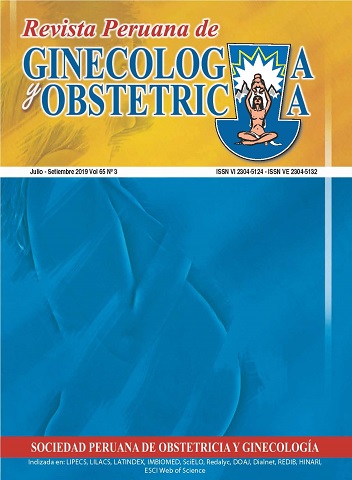New challenges in protecting women’s life and health
DOI:
https://doi.org/10.31403/rpgo.v66i2184Abstract
Background: One of the UN Sustainable Development Goals is to reduce maternal mortality. Objective: To determine knowledge, attitudes and practices of health professionals regarding abortion. Design: Cross-sectional type of survey. Methods: During 2017, the Ecuadorian Federation of Gynecology and Obstetrics Society - FESGO applied a survey to 132 health professionals to determine their knowledge, attitudes and practices regarding abortion. Results: We identified more nonpunishable abortion causes than those the law recognizes. The most frequent of these were rape (21%) and congenital malformations (13%). 83% of respondents agreed that law should allow ending a pregnancy if the woman’s life were at risk and 46% if her health was at risk. 61% of them agreed if the fetus had a congenital malformation. In addition, 46% agreed if it was the product of rape of a disabled woman, 40% if it was the product of rape, and 28%, if it was product of an incest. In case of a disabled woman pregnant because of rape, 57% would give information on options for pregnancy interruption, and 26% would give information on the legal frame that allows pregnancy interruption. However, 23% would lie by saying that the country’s legal frame does not allow pregnancy interruption. Conclusions: The survey reflects a wider perception on non-punishable abortion causatives than what the law recognizes. Nevertheless, 23% would indicate that the country’s legal frame does not allow pregnancy interruption, contradicting the legal regulation that protects the woman’s right to abortion access to protect her health and life. Barriers against the women’s right to decide on her health persist.Downloads
Download data is not yet available.
Downloads
Published
2019-06-27
How to Cite
Miranda, O., Ortiz, T., & Yuen Chon, V. (2019). New challenges in protecting women’s life and health. The Peruvian Journal of Gynecology and Obstetrics, 65(3), 293–298. https://doi.org/10.31403/rpgo.v66i2184
Issue
Section
Artículos Originales
















